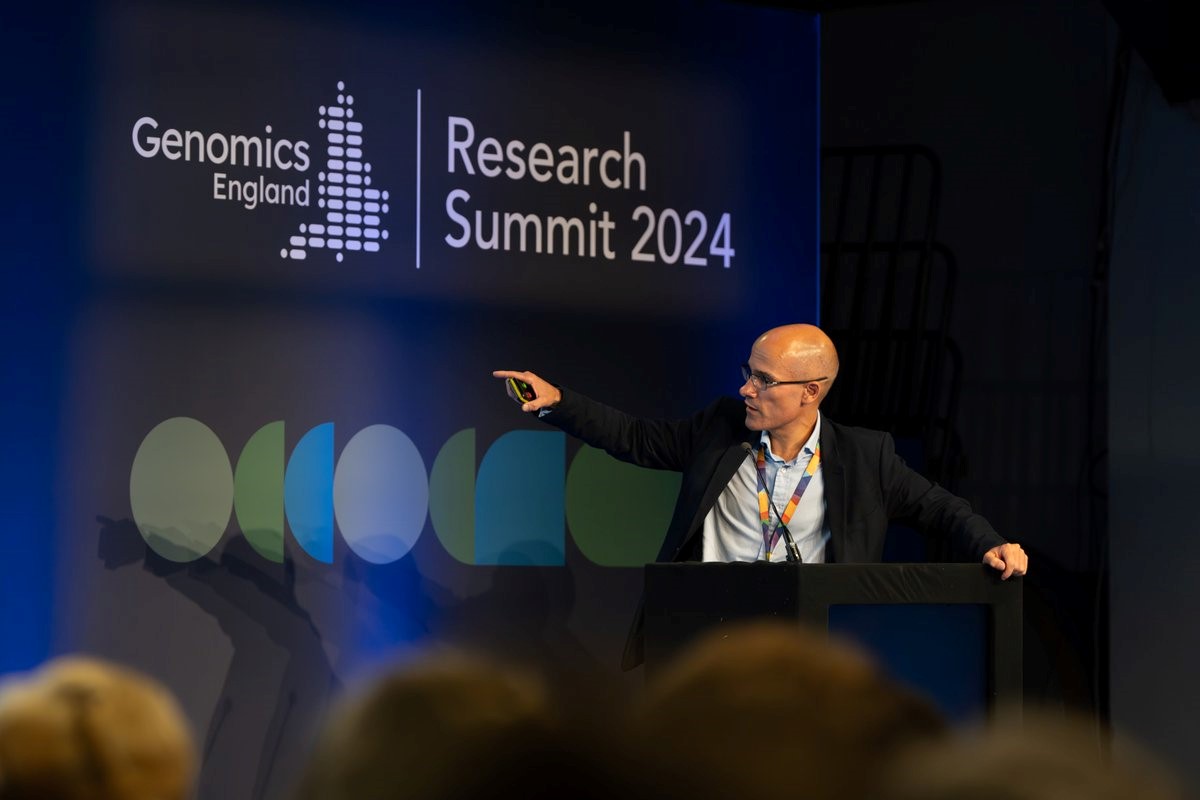The GEL Research Summit offered me a front-row seat to the latest developments in genomics research and healthcare innovation, providing an exciting vision of upcoming healthcare transformation.

Set against the backdrop of the UK's robust regulatory framework, the summit highlighted the nation’s strong position in leveraging regulatory excellence for development of innovative technology in genomics and personalised medicine.
Two overarching themes running through the event were the Genomic Healthcare Service, utilising the 100,000 Genomes Project to provide comprehensive whole genome sequencing insights for patients dealing with cancer and rare diseases, and the Genomic Research Service, an infinity loop of data collection, insight gathering and application in clinical care informing continuous system improvements.
Key themes from the event included:
Addressing Economic and Health Challenges
The UK faces significant challenges due to its ageing population and the prevalence of long-term illnesses among the working population. Genomic research offers solutions to mitigate these challenges by providing early diagnosis and targeted treatments.
Whole Genome Screening and Pharmacogenomics
The future of healthcare is dependent on the capabilities of whole genome screening and pharmacogenomics. By understanding an individual's genetic makeup, we can tailor treatments to their specific needs, improving efficacy and reducing adverse effects. This personalised approach extends to treatment stratification and polygenic risk scores, enabling more precise predictions of disease risk and progression.
Innovations in Cancer Screening and Diagnosis
The summit showcased groundbreaking advancements in cancer screening, such as liquid biopsies for multicancer early detection tests. These non-invasive tests can revolutionise early diagnosis.
Cellular Genomics and Vaccine Development
The establishment of a cellular genomics pathology centre and the NHS vaccine launch pad represents another leap forward. These initiatives will harness the power of genomic data to develop new vaccines and therapies, particularly for rare and difficult-to-treat cancers like glioma.
The Role of AI and Machine Learning
Artificial intelligence (AI) and machine learning will play a crucial role in this genomic revolution. These technologies can analyse vast amounts of genomic data to identify patterns and correlations that would be impossible for humans to detect. This capability will accelerate the development of new treatments and improve the accuracy of disease predictions.
Pharmacogenomics and Drug Safety
The development of the Yellow Card biobank, a collaborative effort between GEL and MHRA, is another highlight. This initiative will study drug safety through pharmacogenomics, leading to future pharmacogenomic Yellow Card reporting. This system will help identify adverse drug reactions based on genetic profiles, ensuring safer and more effective use of medications.
Attending the GEL Research Summit 2024 was a landmark experience for me, showcasing the UK's leadership in genomic research and healthcare innovation. By harnessing the power of whole genome screening, pharmacogenomics, and advanced diagnostic tools, the summit not only highlighted these advancements but also set the stage for future innovations that will improve health outcomes and address the pressing challenges of our time.
The journey toward a future where personalised medicine is the norm is just beginning, and the GEL Research Summit 2024 highlighted this exciting proposition.
If you’re a health and social care organisation looking to drive innovation to the frontline, we’re here to help. Reach out to discover how we can collaborate and make a significant impact together. Get in touch here.



